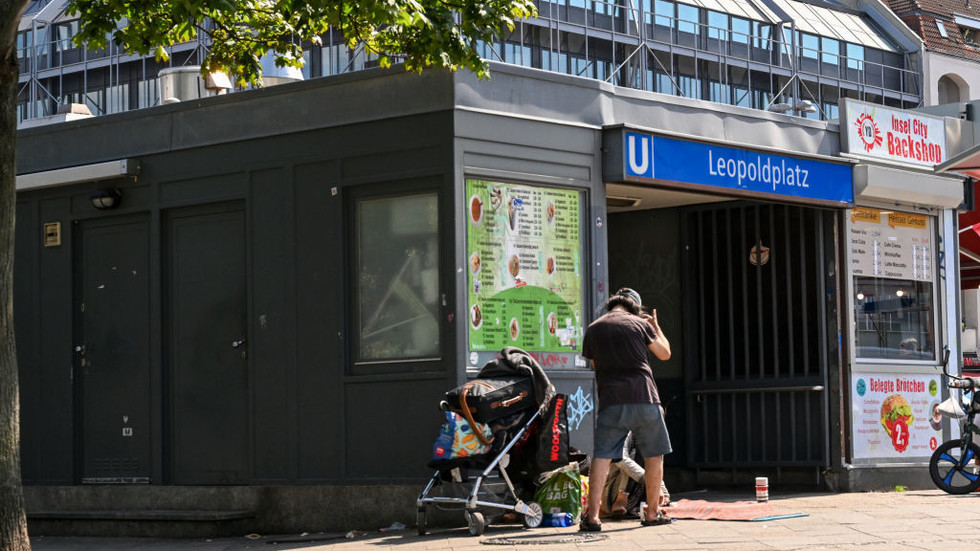KNOW COMMENT: A tribute to brave soldiers, their resilient families, and our believing nation
By DAVID M. WEINBERG NOVEMBER 24, 2024 18:22 Updated: NOVEMBER 24, 2024 18:28 THE GRAVE marker of Yonadav Levenstein at Mt. Herzl Military Cemetery in Jerusalem: Yonadav had married the love of his life, Hadar Karavani, just two months before being felled by Palestinians who popped out of a terror attack tunnel in Gaza.
(photo credit: Courtesy/David M. Weinberg)
THE GRAVE marker of Yonadav Levenstein at Mt. Herzl Military Cemetery in Jerusalem: Yonadav had married the love of his life, Hadar Karavani, just two months before being felled by Palestinians who popped out of a terror attack tunnel in Gaza.
(photo credit: Courtesy/David M. Weinberg)
The yahrzeits of Israeli soldiers who fell in battle at the start of the IDF counter-assault against Hamas, a month or so after October 7 last year, are being marked right now, in mid-Mar Cheshvan – the bitter, bitter Hebrew month of Cheshvan. (Yahrzeit is Yiddish for anniversary of death.)
One of these slain heroes is my beloved young friend Yonadav Raz Levenstein, may heaven avenge his death.
Yonadav had the physique of a giant and the soul of a singer-scholar. Given his size, enormous red beard, and outstanding military leadership, he was known as the “Viking” of the Givati Brigade’s reconnaissance unit. Given his calm demeanor and erudite take on all things, he was revered at 23 years old as the wise old man of the unit.
He had married the love of his life, Hadar Karavani, just two months before being felled by Palestinians who popped out of a terror attack tunnel in Gaza. I remember Yonadav’s Givati platoonmates dancing and singing at the wedding with such passion and power that the ground literally shook and the heavens seemed to stir too. He was the youngest son of my dear friends the Levensteins: the late, great Dr. Michael, and the valiant Leora.
At Yonadav’s yahrzeit grave site gathering two days ago at Mt. Herzl, and at many other recent cemetery memorial gatherings (far too many), what I saw was astounding, what I heard was heartening, and what I felt was fortifying.Of course, there was anguish and longing, pain and pathos, bone-penetrating sadness at the loss of a promising life cut short, and acute compassion for the immediate bereaved family. All this folded into the grim reality of so many other one-year-old military grave markers arrayed in precise rows as far as the eye could see, immersing me in the enormity of Israel’s national sacrifice.
But there was no despair. No regrets, and no wallowing in recrimination. No talk of giving up hope.
Instead, there was pride at the privilege of fighting for the freedom, security, and sovereignty of the Jewish people in the Land of Israel. There was determination to battle on. There was resolve to win against all enemies. It was a tsunami of steadfastness, a demonstration of overpowering ideological devotion to Jewish destiny.
And there was buoyancy: enthusiasm to live a happy, meaningful, and productive life despite the tragedy – out of allegiance to the fallen soldier and indeed, to the nation at large.
The spirit of Israel
There were young soldiers arriving straight from the battlefield and going directly back to the battlefield, who spoke of the morality and courage they learned from their fallen comrade-in-arms. There were battered and bereaved grandparents offering wisdom about the vicissitudes and vulnerabilities of life, while charging their other grandchildren to struggle on – since Israel’s path is righteous, and its cause is just.
This is what social scientists call resilience.
Stay updated with the latest news!
Subscribe to The Jerusalem Post Newsletter
BROAD segments of the Israeli public are fueled and redeemed by such resilience, driving them to take on myriad tasks of volunteer kindness and brotherly love.
This ranges from remarkable mothers holding down the home front to the hundreds of thousands of Israelis (and Diaspora Jews) who volunteer in myriad ways to make up labor shortfalls in fields, factories, and hospitals; from those who babysit for families of reservists away from home, to those who cook and bake for soldiers on the frontlines; from social workers and trauma specialists accompanying the families of hostages and the displaced and bereaved, to public diplomacy mavens who courageously take on the antisemites around the world.
In short, Israeli society is heroic, compassionate, determined, and resilient. It is a beautiful thing.
Despite the losses of the past year and the grim reality of continued battle that likely will be Israel’s lot for years to come, most Israelis are also optimistic about the future. Dozens of in-depth polls and international indexes of “happiness” bear this out.
For example, a recent survey of Israel’s younger generation (by Glikman, Shamir, Samsanov of the Publicis Group) makes it crystal clear that Israel is blessed with the most believing youth; a generation of future leaders who are upbeat and keen enough to drive Israel towards every success despite the challenges ahead.
Fifty-nine percent believe that Israel is strong, will win all wars, and has a great future. Forty-nine percent say they are mobilized to the military or are volunteering in civilian frameworks and are “devoted” to the State of Israel.
Eighty-two percent are prepared (to some or to a great extent) to pause the “good life” in terms of personal plans for work, study, and vacation in order to serve the country, and they are prepared to forgo travel abroad all-together.
The explanations given for such unbelievable optimism and commitment – despite internal Israeli disagreements and escalating external conflicts – range from the rich tapestry of social connections that bind Israelis together to shared cultural and national creeds.
I THINK that Israel is also a deeply believing nation, one of the most “religious” societies in the modern world, and this is a central source of resilience. As “secular” as many Israelis are in their lifestyle, they are simultaneously deep believers in divine providence over the Jewish people.
By and large, Israelis sense that they are on a grand meta-historic journey; a journey pregnant with spiritual powers and loaded with a moral heritage that has sustained the Jewish people for thousands of years and returned it to the Land of Israel. They know that no Jew lives in Israel merely by chance or on a whim, but rather that there is a guiding hand behind the modern renaissance of Jewish life and peoplehood.
Look at all the prayer assemblies in every corner of this country. Witness the mass Kabbalat Shabbat ceremonies at the hip Tel Aviv Port and Jerusalem Train Station entertainment spaces every Friday night, attended by hundreds.
Listen to pop music lyrics on mainstream supposedly “secular” radio stations – songs of spiritual longing with words drawn from the Bible and traditional prayers. You feel the spiritual searching underway, with increasing intensity since the atrocities of October 7.
In data published by the Central Bureau of Statistics, 80% of self-declared secular Israelis say that they “believe in the G-d of Israel.” Eighty percent! In my view, this means that four-fifths of “secular” Israelis are not truly secular! They believe in the God of Abraham, Isaac and Jacob, who remains active in Jewish history.
And this, I think, is a central source of Israeli resilience in the face of so much adversity.
Alas, antagonistic-to-religion Israelis (a super minority of the public) drown in their own rancor and displeasure at such statistics. Supposedly “enlightened” but in fact downbeat and blinkered, they are scared by “true believers”– whether they mean believers in God or believers in Jewish rights to the Land of Israel.
What they don’t understand is that “religious” and “believer” need not mean, and generally doesn’t mean, insular, intolerant, or irrational. Rather, it means contemplative, proud, determined, and resilient. It means faith in God, confident in Jewish-Zionist rights, and trusting in the Jewish future.
The late, great British Chief Rabbi Lord Dr. Jonathan Sacks wrote: “The Jewish people have been around for longer than almost any other. We have known our share of suffering. And we are still here, still young, still full of energy, still able to rejoice and celebrate and sing. Jews have walked more often than most through the valley of the shadow of death, yet they lost neither their humour nor their hope – because of faith in God.”
On Yonadav’s yahrzeit, in his honor and memory, it is appropriate to acknowledge the deep wellspring of identity, loyalty, and purpose that animates this nation. It is important to know the gutsy optimism and amplify the patriotic faith authentically expressed by Israel’s younger generation and much of Israeli society. The Jewish people cannot afford anything less robust.
The writer is executive director and senior fellow at the Jerusalem-based Misgav Institute for National Security & Zionist Strategy. The views expressed here are his own. His diplomatic, defense, political, and Jewish world columns over the past 27 years are at davidmweinberg.com

 By The Jerusalem Post (World News) | Created at 2024-11-24 17:15:06 | Updated at 2024-11-25 21:41:20
1 day ago
By The Jerusalem Post (World News) | Created at 2024-11-24 17:15:06 | Updated at 2024-11-25 21:41:20
1 day ago








